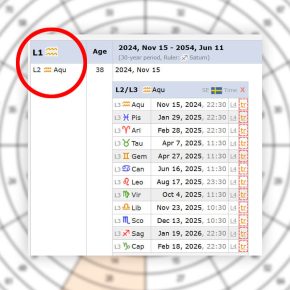Angel numbers can feel comforting, especially when they keep showing up during uncertain times. Many people see them as signs of protection or guidance. But in Islam, angel numbers are considered haram (forbidden) because they don’t come from Allah, and putting meaning into them risks shifting your faith away from Him.
The problem isn’t whether it’s strange to notice repeating numbers, humans naturally notice patterns. It’s what you do with that moment. If you start to believe numbers carry hidden messages, you step into territory that Islam warns against. Faith and guidance are meant to be placed in Allah alone, not in digits that appear on a clock or license plate.
Why They Don’t Belong in Islam
Angel numbers are not part of Islam, Christianity, or any established religion. They’re a modern New Age concept with no roots in scripture. In Islam, guidance is already clear: you turn to Allah, to the Quran, and to the teachings of the Prophet (peace be upon him). Numbers themselves carry no hidden messages or divine meanings. To search for guidance in them is to look away from the sources that truly matter.
Tawheed and Shirk
At the center of Islam is Tawheed, the absolute oneness of Allah. Nothing shares His power, and nothing else deserves our trust. Believing that numbers carry secret messages or hidden power shifts the heart away from Him, and that alone is dangerous. It edges toward shirk, one of the gravest sins. In Islam, guidance is never hidden in codes or repeating digits; it comes directly from Allah, through the Quran and the Sunnah.
How About Angels in Islam?
Yes, angels are absolutely real in Islam. The Quran itself names them, Jibreel, Mika’il, Israfil, and others. They are messengers, protectors, and servants of Allah, carrying out His will exactly as He commands. But neither the Quran nor the Hadith suggest that angels communicate through numbers. The idea of “angel numbers” doesn’t come from Islam at all; it comes from outside traditions and modern spiritual trends.
A Distraction From What Matters
One of the dangers of angel numbers is the distraction they create. When life feels uncertain, instead of seeking comfort in prayer, the Quran, or remembrance of Allah, people end up chasing meanings behind sequences like “111” or “444.” Over time, this habit can shift focus away from Allah and into superstition. Islam warns against letting anything replace trust in Him, because true guidance doesn’t come from numbers… it comes from Allah alone.
Why Scholars Call It Haram
Most scholars agree that angel numbers fall into forbidden territory for two main reasons. First, they are tied to numerology and fortune-telling, both of which are strictly prohibited in Islam. Second, they blur the line between Islamic belief and outside spiritual systems, creating confusion and misguidance. Islam leaves no room for that kind of mixing, guidance is from Allah alone, and His signs are never hidden in number codes.
Staying Rooted in Tawheed
Seeing repeating numbers might feel mysterious, but in Islam they are not angelic signs… they are just numbers. If you notice them and feel unsettled, let it push you back toward faith: pray, open the Quran, or make dua. That is where real guidance is found. Looking for meaning in numbers only risks pulling you away from Tawheed, the oneness of Allah, which is the core of Islam.












